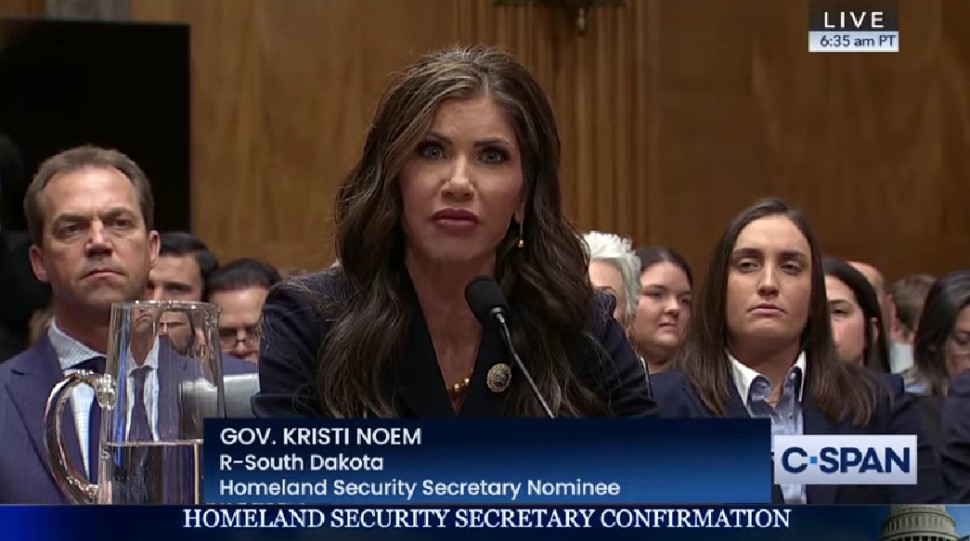
President-elect Donald Trump's nominee to lead the Department of Homeland Security, Kristi Noem, suggested on Friday the incoming Superbowl in New Orleans could be the target of a terrorist attack.
Asked at the confirmation about the threat of domestic terrorism, Noem said the most important one to homeland security is the southern border, detailing that "382 individuals" who are on the terror watchlist crossed the border during the Biden administration.
She went on to reference Louisiana Governor Jeff Landry, in the room for the hearing, and the terrorist attack that took place in New Orleans on New Year's Day where a man who claimed to be inspired by ISIS drove a truck through a crowd killing 14 people and injuring 57.
Noem said Landry is not only concerned about preventing another such attack from happening again, but also about the incoming Superbowl, which will take place in the city on February 9.
"We need to do all we can to work together so he has the reassurance that the federal government and DHS are prepared to help them protect that event and keep people safe while they're there," Noem said.
"Those 382 terrorists, known terrorists who have come over our border, we don't necessarily know where they are because of what has been happening under Joe Biden's policies. President Trump won the last election with a clear mandate: to secure that border," she added.
Noem is poised to take charge of an agency with a $60 billion budget and hundreds of thousands of employees, according to CNN. However, her role is reportedly expected to be more limited ins scope than her predecessors. NBC News reported that on immigration she would be following the lead of border czar Tom Homan and from Stephen Miller, the deputy chief of staff for policy.
Noem was the first governor to send state National Guard troops to the U.S.-Mexico border in Texas. With key immigration issues and national security at the forefront of Trump's second-term agenda, Noem's new role positions her at the center of some of the most contentious policy debates in the country.
Originally published on Latin Times




